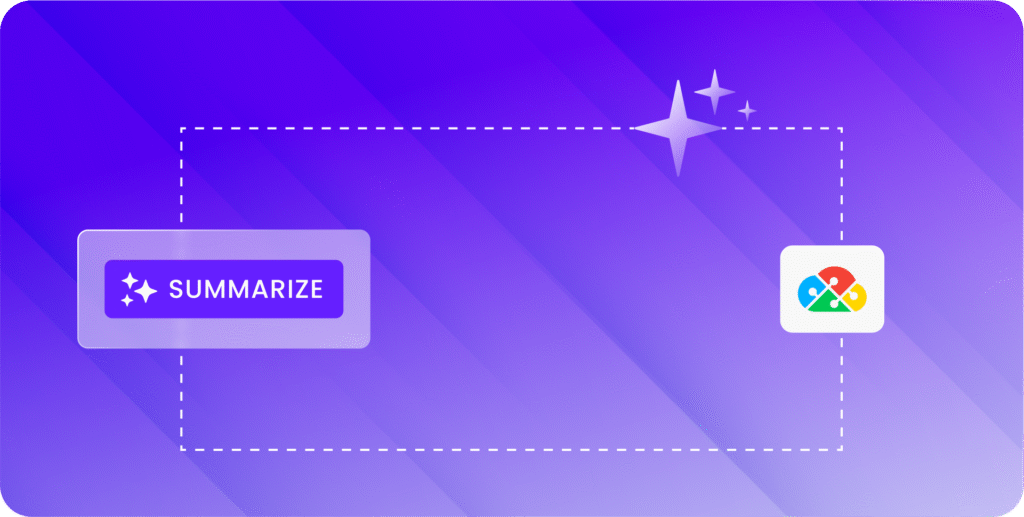Docker’s broad compatibility, flexibility, and scalability are appealing, but there are also some downsides developers should consider first.
As of 2023, 39% of companies were fully cloud-native when it came to development and deployment, and they were using containers. And those numbers have surely grown since.
Why?
Containerization promises to increase efficiency, improve compatibility, and provide flexibility at scale. The problem is figuring out which containerized application software is right for your needs. Docker is one of the most popular containerized development tools on the market today. But what are the advantages of Docker and the disadvantages of Docker? Would another platform be a better fit?
In this article, we’ll explore the Docker advantages and disadvantages. Developers need to consider these before onboarding the platform or making a switch to new tech. It’s also helpful to look at Docker alternatives.
Get exclusive insights in our detailed guide on Docker Container Deployment: The Complete Checklist for DevOps Leaders
Key Takeaways
- Docker technology streamlines development with faster deployments, cross-platform consistency, and resource-efficient containers, but teams should weigh these advantages against potential drawbacks like orchestration challenges and a steep learning curve.
- While Docker is lightweight and efficient, it introduces security concerns due to shared OS and different environments.
- Manually running container configuration can undercut the benefits of Docker, and DevOps automation platforms like DuploCloud simplify setup, improve security, and dramatically reduce deployment times, making Docker a more viable option for fast-moving teams.
Advantages of Docker, Disadvantages of Docker at a Glance
Docker is an open-source software platform. It’s designed to help developers build, test, deploy, and run containerization tool applications.
When the Docker host originally launched in 2008, it:
- Combined the convenience of a command line interface with a server daemon
- Offered a library of pre-built images
- Provided a registry server to make it easy to build and share layered containers
The container approach allows for multiple application environments to exist. And they can all be isolated from one another within a host system.
Here are the advantages and disadvantages of Docker at a glance:
| Docker Pros | Docker Cons |
| Cross-platform consistency: Compatibility across a range of systems and environments makes developers’ jobs easier. | Outdated documentation: Docker’s extensive documentation doesn’t always keep pace with platform updates. |
| Serverless storage: Docker containers are cloud-based and don’t require tons of active memory to run reliably. | Steep learning curve: Developers transitioning from other infrastructure might find Docker easy to begin but hard to master. |
| High-speed deployment: Eliminating redundant installations and configurations makes deployment fast and easy. | Security issues: The lack of segmentation means that multiple containers can be vulnerable to host system attacks. |
| Flexibility and scalability: Developers can use any programming language and scale container resources up and down as needed. | Limited orchestration: It can be difficult to manage multiple containers at once without orchestration capabilities. |
Advantages of Docker Containers
Docker is one of the most popular containerized application development platforms for a reason. It may not be the best fit for every development team or organization. But its high availability and strengths have made it a favorite in the space.
Docker enables developers to:
- Streamline their workflows
- Reduce environment-related bugs
- Simplify application deployment across different stages of the DevOps lifecycle
Its container-based model also supports microservices architecture. This makes managing containers easier. It's also easier to build modular, reusable components. You might be developing locally, testing in staging, or deploying to production. In any event, Docker simplifies and ensures consistency and portability.
Here are the primary Docker advantages you should know:
Cross-platform Consistency
The Docker hub works across multiple environments, platforms, and operating systems. This means consistency across development teams and container orchestration. Engineers get to work in a consistent and unified way instead of bouncing back and forth between servers or machines.
Docker’s cross-platform compatibility eliminates the risk of deployment panic. This happens when dealing with Mac, Windows, and Linux deployments simultaneously. When images transform into containers through Docker, they deploy automatically. They also remain stable on any system or device.
Serverless Storage
Docker containers eliminate the need for sprawling server farms. These are built to contain virtual machines. Virtual machines split each server into several environments. This means they require both extensive server space and active memory.
In contrast, Docker containers can run completely in the cloud, without installing an operating system on each one. Containers also make the most of memory and storage space by reusing components in virtualized images.
High Speed Build & Deployment
One of the most important advantages of Docker containers is that it’s easy to deploy them quickly. Developers can schedule and automate specific actions across multiple environments. This takes some of those mundane, repetitive tasks off of developers’ plates.
Docker containers can also have multiple layers representing a log of changes to the image base. This speeds up the build phase and enables version control and CI/CD support. And developers won't have to install or configure operating systems each time. This means they can deploy applications in just a few seconds or with just a few lines of code.
Flexibility & Scalability
Docker aims to fulfill its mission of making developers more efficient. To do this, it prioritizes flexibility and scalability. Developers can use any programming language or library on a server. And they can easily scale up or scale down resources depending on the specific needs of a given container. In addition to that vertical scaling, horizontal scaling is also easy with Docker. Developers can deploy multiple containers within a unified overlay network. They do this in order to load balance and distribute performance.
Docker’s scalability features require transitioning your on-premise infrastructure to the cloud. DuploCloud can help you get there.
Download a free copy of our Essential Cloud Migration Checklist. Plus, follow our step-by-step guide to plan and execute a seamless migration.

Disadvantages of Docker
It’s critical to balance the pros and cons of any new tool or piece of software. You want to determine fit and decide whether or not to onboard Docker. So take the time to consider these disadvantages and assess whether or not they’re deal breakers for your team. Yes. Docker simplifies many aspects of application development. But it also introduces complexity in areas like orchestration, monitoring, and security.
Teams without prior container experience may face a steep learning curve. This curve is especially steep when integrating Docker into existing CI/CD pipelines or legacy systems. Additionally, Docker’s performance benefits can be offset by misconfiguration or resource limitations. This is especially true if they're not managed properly.
Outdated Documentation
The open-source culture behind Docker helps ensure that the software is constantly evolving. Sure, that rapid-fire pace of change is positive in most respects. But it can mean that the community can sometimes get ahead of themselves.
Docker is known for its expansive documentation library. But new documentation can’t always keep up with the pace of new releases and updates to the software. Often, developers need answers about changes in Docker. These can be hard or even impossible to find until the relevant documentation is ready.
Steep Learning Curve
Many developers are familiar with virtual machines and containerized infrastructure. Even for them, switching to Docker can be a difficult task. Learning the basics isn’t necessarily out of reach. But becoming proficient with Docker often requires a lot of dedicated time and effort.
Docker Extensions and other additional tools that Docker supports are helpful in many ways. But they also make the software even more complex to learn. And as with Docker documentation, the constant pace of updates can make it hard to stay on top of platform mastery.
Security Issues
One of the main advantages of Docker containers is that they are lightweight and don’t require tons of resources. But sharing a common operating system also introduces security issues. Isolation or segmentation are important principles in modern network architecture. This is especially necessary to prevent the risk of several containers or environments being impacted at the same time when an attacker breaches the host system.
So, virtual machines require server space and more memory to run. But when each one uses its own operating system you’ll get a stronger security posture. It’s possible to combat these security issues with containers. You'll have to integrate them into existing infrastructures and inherit their security standards. But that introduces even further complexity.
Limited Orchestration
Yes. Docker does offer some automation features. But its capabilities for automation and orchestration are not as robust as other containerized platforms like Kubernetes. Without extensive orchestration, it can be difficult to manage multiple containers and environments at the same time. DevOps teams rely on orchestration to be effective. So using Docker would necessitate third-party or external tools.
DuploCloud Makes Container Configuration Easy
So, you see there are advantages of Docker and disadvantages of Docker. In addition to Kubernetes, there are other alternatives to Docker worth considering.
OpenShift is Red Hat’s suite of containerized application tools (and it also happens to be built on Kubernetes).
Podman is a daemon-less container platform.
LXD is an application engine designed specifically for Linux containers.
At the end of the day, the right containerization platform for your team will depend entirely on your:
- Existing environments
- Preferred programming languages
- Development needs
For DevOps professionals, Docker remains a popular choice. This is thanks to its CI/CD capabilities, broad compatibility, and speed and efficiency in every phase from build to testing to deployment. No matter what containerization platform you choose, manually configuring containers cancels out some of the most important benefits of the tech.
Instead of time-consuming, error-prone, and hard-to-scale manual configuration, use DuploCloud’s DevOps Automation Platform.
It streamlines crucial aspects of the DevOps pipeline. This includes container configuration and orchestration. Our platform provides 24/7 monitoring and reporting functionality to keep all your cloud infrastructure secure and compliant. And with a no-code/low-code approach, the DevOps Automation Platform speeds up deployment times by 10x.
Contact us today for a free demo to learn more.
FAQs
Is Docker the best container platform for all use cases?
Not necessarily. While Docker is powerful and widely adopted, it may not be ideal for every use case. This is especially true when orchestration or security isolation is a top priority. Teams working in complex multi-container environments might benefit from Kubernetes or OpenShift, which offer more robust orchestration capabilities.
How does Docker compare to virtual machines in terms of performance?
Docker containers are generally more lightweight and faster than virtual machines because they share the host OS kernel and avoid the overhead of running full operating systems. However, VMs offer stronger isolation, which can be critical for security-conscious applications.
What tools can help overcome Docker's orchestration limitations?
To address Docker’s limited native orchestration, many teams pair it with Kubernetes or Docker Swarm. Platforms like DuploCloud further simplify orchestration by automating deployment, scaling, and monitoring tasks, especially for DevOps teams with limited engineering resources.
What should teams do to mitigate Docker's security risks?
Security concerns with Docker can be mitigated by:
- Following container hardening best practices
- Isolating containers properly
- Keeping images up to date
- Using automated security scanning tools
Leveraging platforms like DuploCloud helps integrate container security into a broader DevSecOps strategy.









